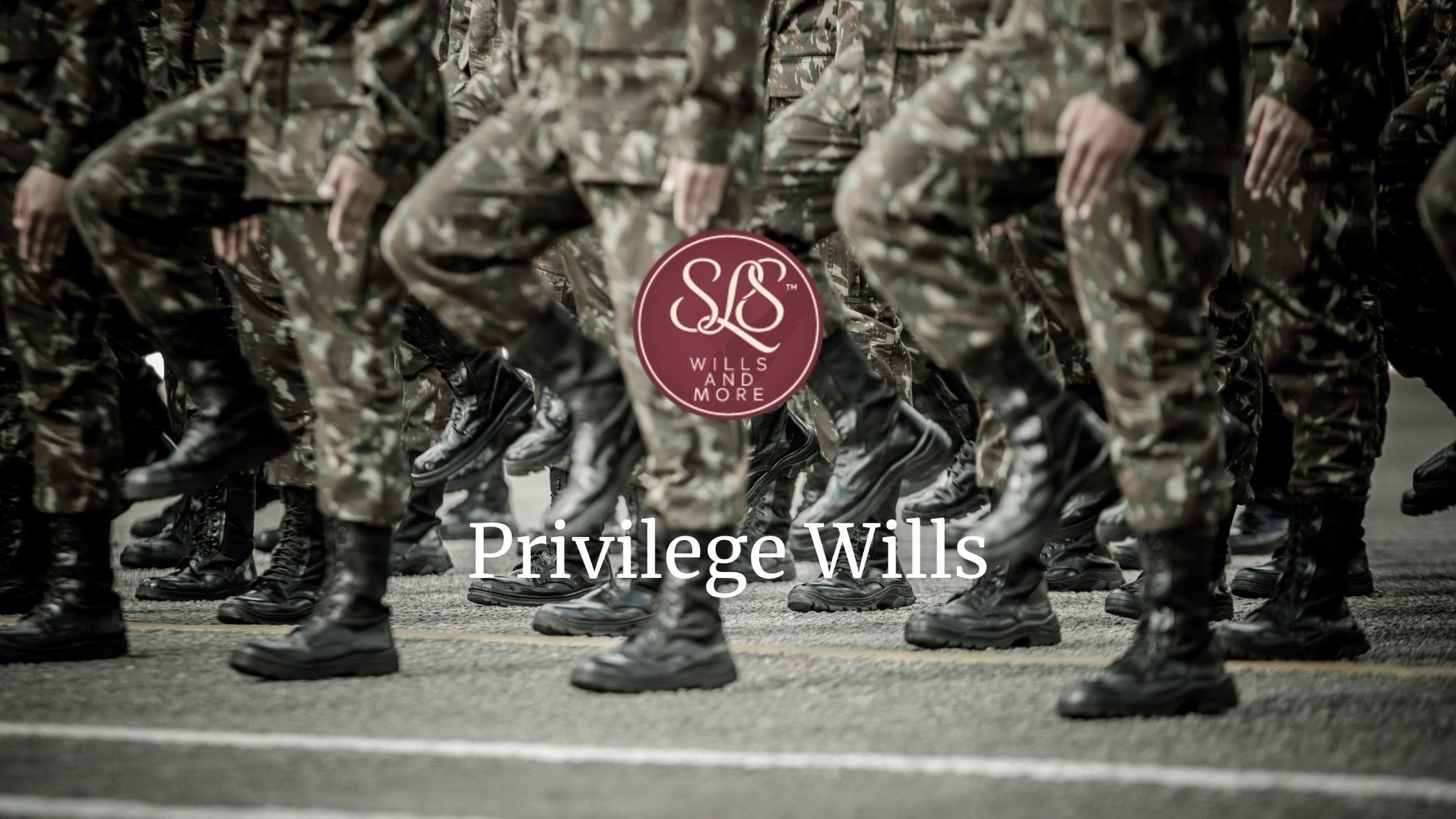In England and Wales, most individuals are familiar with standard Wills, created through legal documents that are signed and witnessed. However, there exists a lesser-known, yet still legally recognised, type of Will known as a “privileged Will.” While rarely used, a privileged Will can be invaluable for certain individuals facing specific circumstances. This article explains what a privileged Will is, when it can be made, and how it differs from a traditional Will. If you’re considering your estate planning options, understanding privileged Wills could be essential, especially if you or a loved one may need this unique form of testamentary instrument.
What Is a Privileged Will?
A privileged Will is a type of Will that can be created by certain individuals without the usual formalities required for a standard Will. Privileged Wills are recognised under English and Welsh law, but their application is strictly limited to particular situations, mainly involving those in high-risk environments, such as active military service. Because they do not require the same formal witnessing and signing requirements as standard Wills, privileged Wills provide a quick, flexible way for eligible individuals to make their wishes legally binding.
Who Can Make a Privileged Will?
In England and Wales, the right to make a privileged Will is reserved for two categories of individuals:
- Members of the Armed Forces in Active Duty: Soldiers, sailors, airmen, and other military personnel actively engaged in, or preparing for, operations where their life is at risk can make a privileged Will. The law recognises that those in military service often face unique pressures and may have limited opportunities to complete formal estate planning, especially during times of conflict or imminent danger.
- Seafarers and Mariners at Sea: Individuals who work at sea also have the right to make a privileged Will, given the inherent risks of their occupation and their potential distance from standard legal services. Mariners or seafarers in situations where they cannot make a standard Will are permitted to use the privileged Will option.
It’s worth noting that while these two categories cover most privileged Wills, the term has also occasionally applied in instances where civilians find themselves in extreme danger, though this is far less common and not explicitly covered by legislation.
How Do Privileged Wills Differ from Standard Wills?
The main differences between a privileged Will and a standard Will involve formal requirements. For most Wills in England and Wales, specific steps must be followed for them to be legally valid:
- A standard Will must be written, signed, and witnessed by two independent witnesses.
- The person making the Will (the “testator”) must be at least 18 years old (though in specific, rare cases of privileged Wills, the age can be younger, provided the individual is eligible as described above).
Privileged Wills, however, are not bound by these requirements. For example:
- No Witnesses Are Required: A privileged Will can be made without the presence of witnesses. This provision allows individuals in active service to declare their wishes even if they are isolated or in dangerous situations.
- Oral Wills Are Permissible: While a typical Will needs to be in writing, privileged Wills allow for verbal declarations. This means that eligible individuals may simply state their intentions verbally, making it a practical solution in emergency situations.
These relaxed requirements make privileged Wills unique in the scope of English and Welsh law. However, once a privileged Will is made, it is still legally binding and will be treated as such in probate, provided the person was eligible at the time it was created.
When Are Privileged Wills Used?
Privileged Wills are rare because they apply only to those facing extreme conditions where traditional Will-making may not be feasible. Examples include:
- Military Personnel in Combat Zones: A soldier deployed to a conflict zone may feel the need to declare their wishes before engaging in dangerous operations.
- Seafarers in Isolated Waters: Mariners or seafarers who find themselves in perilous circumstances, such as severe storms or other emergencies, may make a privileged Will to ensure their intentions are clear if something unfortunate were to happen.
Considerations for Those Making a Privileged Will
While a privileged Will can be highly beneficial in critical situations, it’s important to remember that it does come with some limitations:
- Informality Risks: Due to the informal nature of privileged Wills, proving their validity in probate can be more challenging if there is any dispute among beneficiaries. A written Will, if possible, is always preferable.
- Non-Applicability to Civilian Situations: Privileged Wills are not an option for civilians who are not facing imminent danger in the ways described. Civilians in other hazardous jobs, for instance, would not typically be eligible for privileged Will status.
The Minimum Age for Making a Will in England and Wales
In England and Wales, the minimum age to make a standard Will is 18. However, those eligible to make a privileged Will, such as young soldiers in active duty under the age of 18, may be permitted to create a privileged Will, reflecting the unique demands and risks associated with military service.
Final Thoughts on Privileged Wills
Although privileged Wills are infrequently used, they represent an important exception in English and Welsh law, reflecting the special needs of military personnel and others exposed to serious risks. Privileged Wills allow those individuals to ensure their wishes are honoured, even if they cannot complete a standard Will. For those considering a privileged Will, consulting with a specialist in Wills and estate planning, like SLS Wills and More, can offer clarity and guidance on this specialised topic.
If you have further questions on privileged Wills or any other estate planning needs, feel free to contact SLS Wills and More to discuss how we can assist you.







